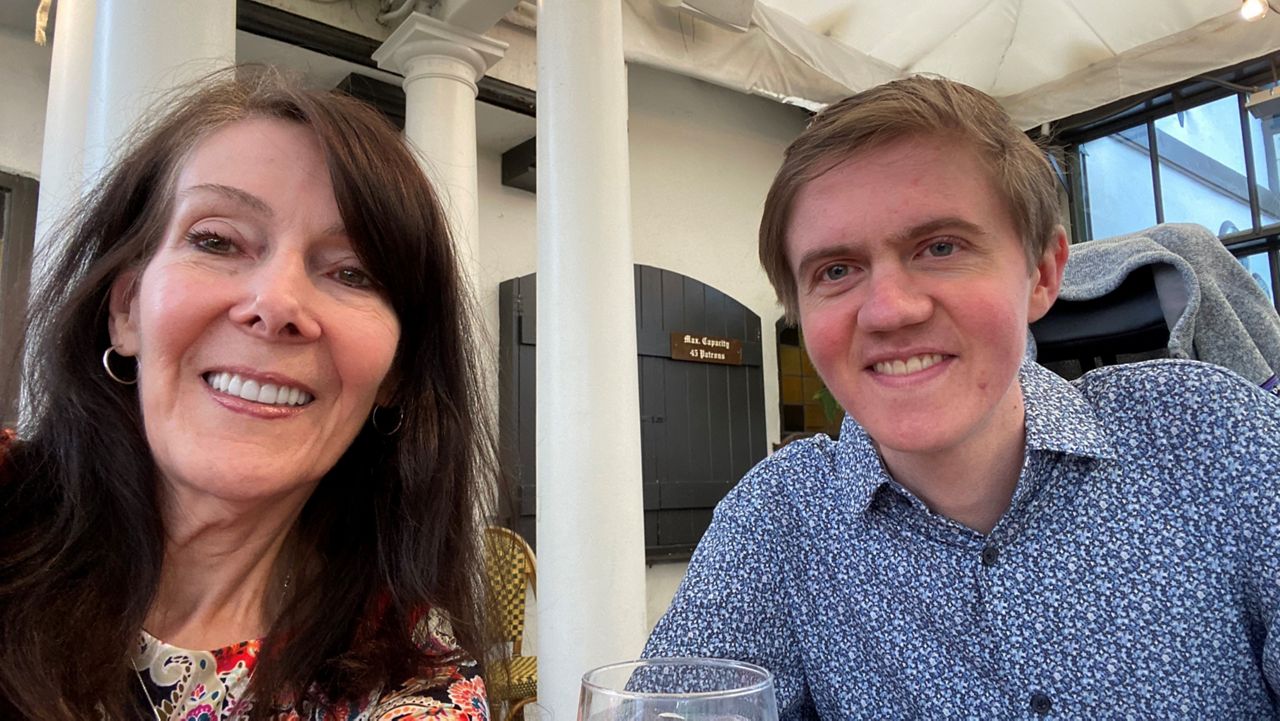NEWPORT BEACH, Calif. — When Hawken Miller was born, his mom said the name sounded like an author’s or a hockey player’s.
Whatever Hawken would later become would soon be filtered through a rare condition his family hadn’t anticipated: a degenerative illness known as Duchenne disease, a type of muscular dystrophy primarily affecting boys.
But the early signs were bewildering, a series of odd little things that made Hawken's mother, Debra, wonder if something was wrong. Only she didn’t spot them right away.
Hawken began walking over time but developed slower in other ways, doing things just a bit differently. He didn’t push himself off the floor like other children, and his legs didn’t wrap around his mother when she held him. And at 5 years old, Hawken didn’t display the youthful exuberance familiar in some other children, moving with less vigor and pace.
In hindsight, all the clues were there. But Debra, a first-time mom, didn’t know what to expect. He appeared sluggish to her, less willing to run around like other kids.
“I thought he was lazy, so I took him to the park to do wind sprints,” Debra said.
It wasn’t long after that he was diagnosed with Duchenne, which affects about one in 5,000 boys or 20,000 new cases a year. Debra felt horrible afterward, having misunderstood what was going on with her son. But finally, there were answers to many of the questions, and, at last, a clarity of direction.
After the diagnosis during a car ride, Debra looked back at Hawken in the rearview mirror, wearing his little blue ball cap.
“God has a different path for you,” she said.
It also meant a new life path for Debra who, along with her husband Paul, chose not to accept the bleak outlook Duchenne patients are at risk of adopting.
While Duchenne patients mainly rely on steroids for treatment, a cure still eludes medical science. At 6 years old, Hawken began his steroid treatments, a way to try to counteract the illness.
But a cure was essential. So Debra and Paul founded Newport Beach-based CureDuchenne in 2003, a full-court press to raise money in search of a cure. The effort increasingly consumed Debra, who runs the foundation as CEO.
“It was all about Hawken. We wanted to save our son,” Debra said. “But the more people you meet, your heart grows.”
Over the years, the nonprofit has grown through a series of fundraisers and investments in small biotech companies with promising drugs. Some of the companies the foundation has invested in have grown enough to offer some return on early investments, opening the way to more investments in Duchenne research.
Pharmaceutical companies can spend decades developing and testing drugs before they arrive to market, and with other nonprofits, including some invested in cystic fibrosis research, companies and researchers are in high demand.
Hawken’s parents gave him all the help he needed and have provided him with two assistants to help him as he lives with a roommate. But they also taught him to fight for himself and refuse to give up.
Life has been a series of adaptations, each problem a momentary hiccup in search of a solution. Hawken never took to the ice with a hockey stick aloft. Instead, he became a writer in high school, moving toward journalism in college at the University of Southern California’s Annenberg School of Communication and Journalism.
After graduating with honors in 2019, he took a job with BioNews Services, writing about other types of degenerative conditions and personal accounts of life with Duchenne muscular dystrophy.
“It’s definitely a form of therapy,” 25-year-old Hawken said. “I try to be as vulnerable as I can in these columns.”
His sport of choice now is the fast growing eSports field, with "Call of Duty" a special interest of his. He’s even a freelancer for the Washington Post on pro video game competitions and upgrades made to popular games.
While life has thrown Hawken, Debra and Paul on paths they hadn’t anticipated, they’ve all adapted. And all are fighting and reaching for a cure.
“It’s not enough,” Debra said. We need to keep fundraising.”
CORRECTION: An earlier version of this story incorrectly identified a co-founder of the CureDuchenne foundation. The error has been corrected. (May 12, 2022)



